Intelligent Automation for Public Sector

Intelligent automation simplifies public sector processes
Intelligent automation (IA) combines artificial intelligence (AI), machine learning (ML), natural language processing (NLP), and process automation to optimize complete business outcomes. This emerging technology has tremendous potential to help public sector organizations improve efficiency and effectiveness while minimizing costs. Intelligent automation is an essential tool for government agencies to orchestrate processes across all levels of government. Policymakers and administrators need to stay up-to-date on the latest developments in this rapidly evolving field. With the right knowledge, they will be able to harness the power of intelligent automation and use it effectively to achieve their goals.
AI-led tools "Focus more on context and adapting to people and less on task and process flows...[and] AI-led process improvement will take a people-first approach. Context will drive required actions within a single UI experience centered around the customer or employee journey.” - Forrester
Twelve Criteria Help Choose Among DPA, Embedded Process Support, RPA, And AI-Led Platforms, Forrester, October 2021
Intelligent automation provides tangible benefits
The public sector is increasingly adopting intelligent automation (IA) and government agencies to improve process efficiency and quality, reduce costs, and manage risks. As these organizations strive to become more citizen-centric, they turn to intelligent automation to help them meet rising expectations. IA can automate a wide range of public sector processes benefitting citizens, agencies, and contractors, including employee onboarding and enrollment, systems integration, compliance checking, document understanding, and issue resolution. Government agencies can improve service delivery, reduce processing time and errors, and free up staff for higher-value activities by automating these processes. In addition, intelligent automation can help the public sector manage data and information better, improve decision-making, and implement evidence-based policies. As the public sector looks to intelligent automation to provide benefits that matter most to citizens, it is poised to transform public services.
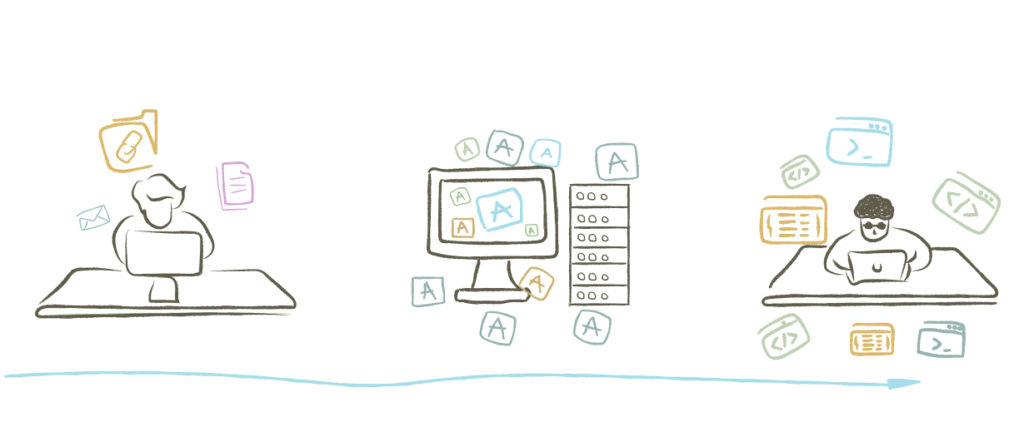
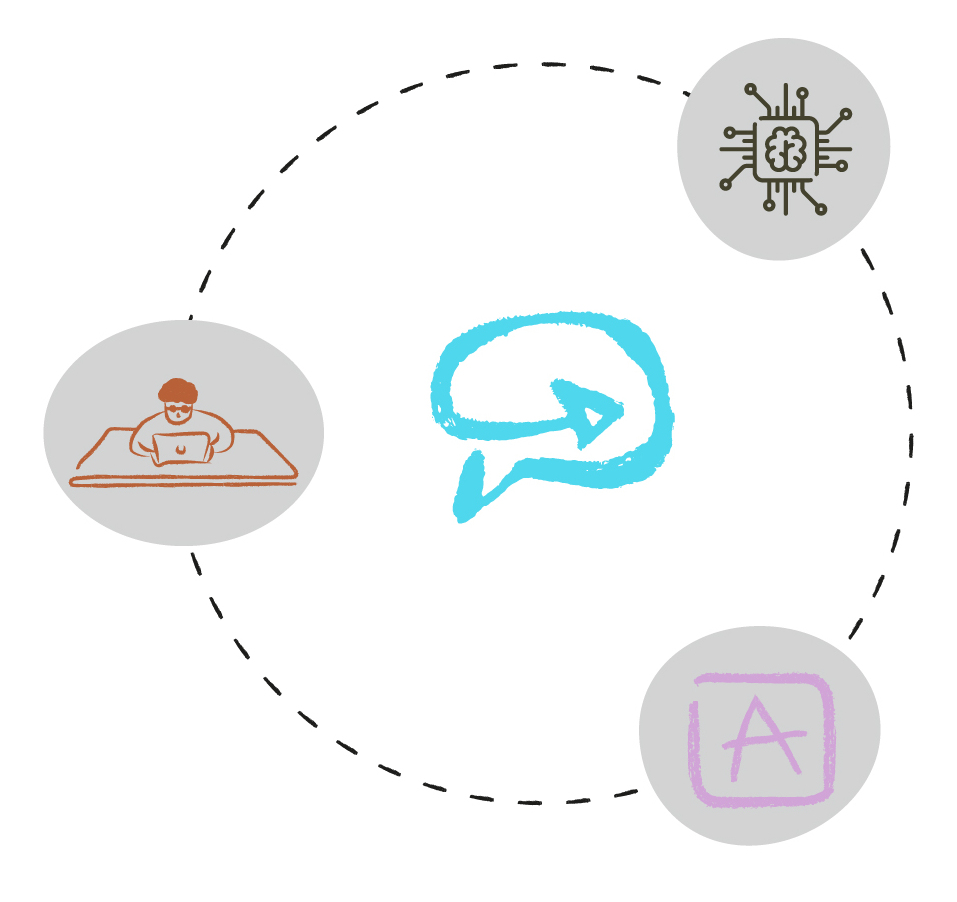
AI optimizes outcomes
Artificial intelligence is instrumental in automating public sector and government agencies’ processes. Thanks to intelligent automation tools, governments can more efficiently and effectively manage their operations, reduce costs, improve access to services for citizens, and provide more timely and accurate information about programs and policies. One of the key benefits of artificial intelligence is its ability to process large quantities of data much more quickly than humans, allowing governments to find insights that would otherwise remain hidden in mountains of information. Intelligent automation and AI make it easier for government employees to focus on complex tasks that require human judgment and creativity rather than managing processes better fit for software.
Intelligent Automation Use Cases
Agencies and contractors apply automation to several business functions to optimize processes. Some examples include:
Virtual Agent
Remove complexity for employees and contractors by providing chat-like natural language understanding interfaces.
System Integration
IA aggregates disparate user interfaces to simplify data look-ups and reduce the number of apps required to get a job done.
Onboarding / Offboarding
Automate onboarding and IT provisioning for new employees and contractor and reverse the process when they leave to eliminate rogue access.
360-Degree View of the Citizen
AI-led chat interfaces provide personalized support and services based on citizen profiles and needs.
Compliance and Management Reporting
IA automates compliance and regulatory reporting as it automates business processes.
Data Analytics and Dashboarding
Intelligent automation collects and structures data into real-time dashboards and automates processes based on data-driven decisions.
Other available resources
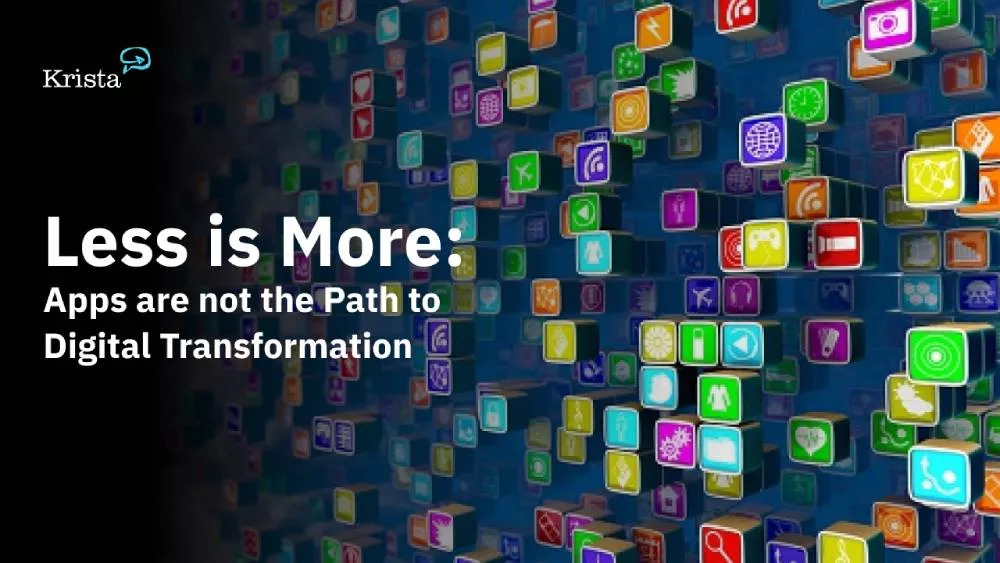
Apps Are Not the Path to Digital Transformation
LCAPs promise to simplify and speed up development to create more apps faster but more apps cause more problems. Read how creating more apps may make your digital journey more difficult.
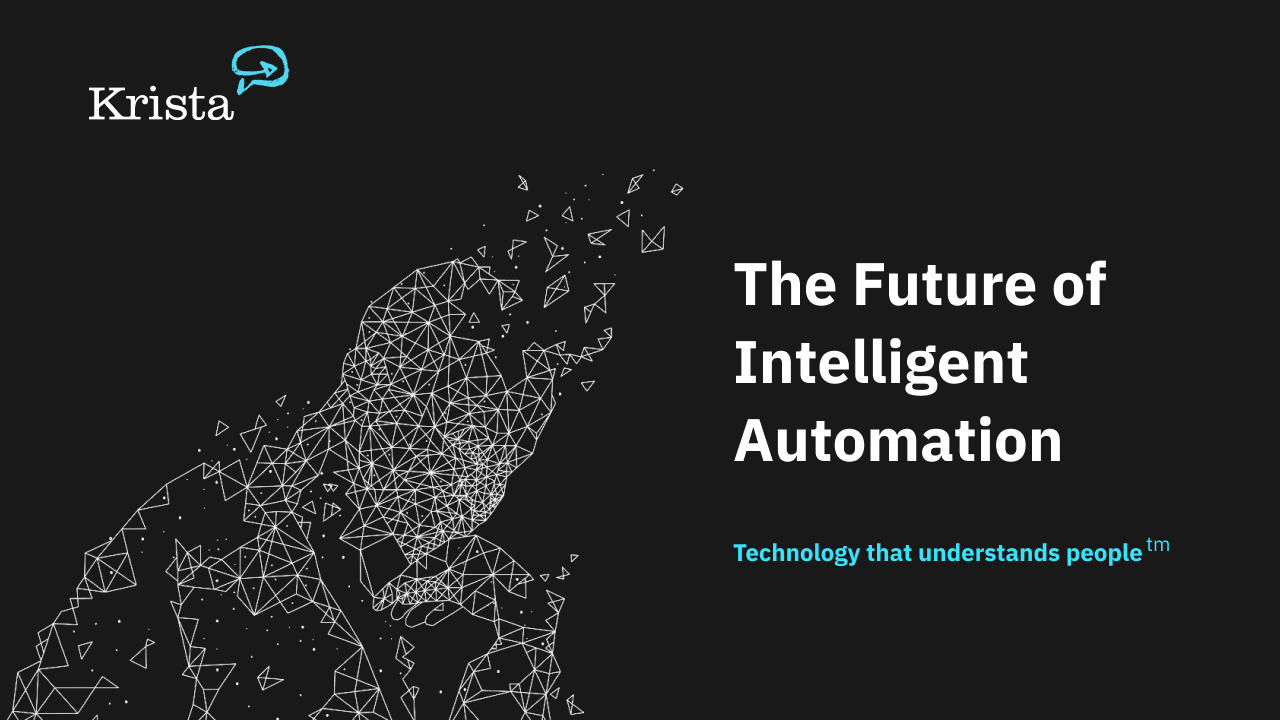
The Future of Intelligent Automation
Digital transformation is building or optimizing business models using modern digital technologies. Today, the speed at which your company transforms depends on your ability to change your systems and change your people.
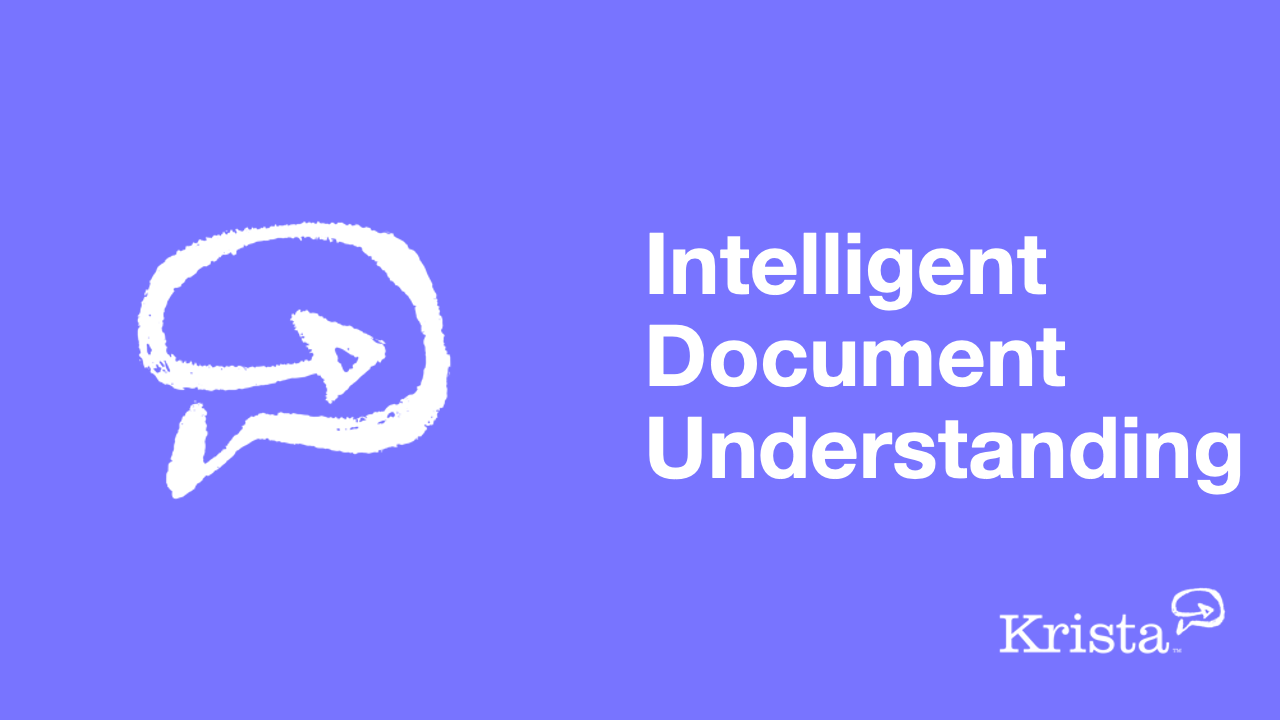
Intelligent Document Understanding
Krista scans documents, connects to data sources, and orchestrates AI to provide stakeholders with information on important business decisions.


